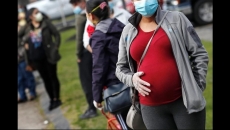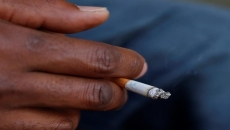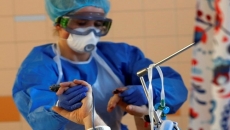Many Americans were forced to postpone cancer screenings— colonoscopies, mammograms and lung scans — for several months in 2020 as COVID-19 overwhelmed doctors and hospitals.
But that delay in screening isn't making a huge impact on cancer statistics, at least none that can be seen yet by experts who track the data.
Cancer death rates continue to decline, and there weren't huge shifts in late diagnoses, according to a new reportpublished Monday in the journal Cancer. It's the broadest-yet analysis of the pandemic’s effect on U.S. cancer data.
In 2020, as the pandemic began, a greater share of U.S. cancers were caught at later stages, when they're harder totreat. But in 2021, these worrisome diagnoses returned toprepandemic levels for most types of cancer.
“It is very reassuring,” said lead author Recinda Sherman of the North American Association of Central Cancer Registries. “So far, we haven’t seen an excess of late-stage diagnoses," which makes it unlikely that there will be higher cancer death rates tied to the pandemic.
Similarly, the number of new cancer cases dropped in 2020, but then returned to prepandemic levels by 2021. The size of the 2020 decline in new cancers diagnosed was similar across states, despite variations in COVID-19 policy restrictions. The researchers note that human behavior and local hospital policies played more of a role than state policy restrictions.
Late-stage diagnoses of cervical cancer and prostate cancer did increase in 2021, but the shifts weren't large. The data analysis goes only through 2021, so it’s not the final word.
“We didn't see any notable shifts,” Sherman said. “So it’s really unlikely that people with aggressive disease were not diagnosed during that time period.”
The report was produced by the North American Association of Central Cancer Registries, the National Cancer Institute, the Centers for Disease Control and Prevention and the American Cancer Society.






